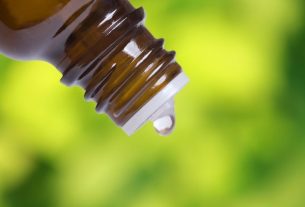Remedies for intestinal colic, such as simethicone, activated charcoal or probiotics may be recommended by your doctor to combat symptoms such as pain and discomfort in the stomach, diarrhea, excess gas and a swollen belly.
Furthermore, some home remedies, such as lemon balm, chamomile and fennel tea, can also be used to complement the treatment of intestinal colic. Check out other teas recommended for intestinal colic.
The treatment of intestinal colic should always be guided by a general practitioner or gastroenterologist, who will identify the cause of this condition and recommend the best remedy on an individual basis.
Main pharmacy remedies
The main pharmacy remedies recommended for intestinal colic are:
1. Simeticona
Simethicone, which can be found under the trade names Luftal, Flatex, Flagass or Gastroflat, is a medicine that facilitates the elimination of gases and helps to relieve discomfort, pain and pressure caused by excess gas in the intestine, and can be used by babies, children and adults.
How to use: simethicone must be taken orally, where the normally recommended dose for adults is 40 to 125 mg, up to 4 times a day. See how to take simethicone.
2. Paracetamol
Paracetamol, when combined with scopolamine, has an analgesic and antispasmodic effect, helping to relieve intestinal colic, as it reduces painful bowel movements.
Paracetamol with scopolamine butylbromide can be purchased in pharmacies or drugstores under the trade names Buscopan Duo or Espaslit Duo.
How to use: the normally recommended dose for adults is 1 to 2 paracetamol tablets + scopolamine butylbromide, up to 3 times a day, for a maximum of 3 days of treatment. This medicine should not be used by children, pregnant women or people who have myasthenia gravis, intestinal narrowing or blockage, paralytic ileus or liver failure.
3. Dipyrone
Dipyrone, which is also known by the trade names Novalgina, Anador, Maxalgina, Lisador dip, Magnopyrol or Dipimed, is a medicine with analgesic action that helps treat different types of pain, including intestinal colic.
How to use: the generally recommended dose for adults is 1 to 2 tablets of 500mg or 1 tablet of 1g, every 6 hours. For babies aged 3 to 11 months (5 to 8 kg of body weight), the recommendation is 2 to 5 drops of dipyrone at 500 mg/mL, 4 times a day, as instructed by the pediatrician. See how to take dipyrone.
4. Activated charcoal
Activated charcoal is a remedy capable of absorbing toxins or chemical substances through the gastrointestinal system, and is recommended to reduce colic in cases of excess gas or food poisoning, for example. Learn more about activated charcoal.
How to use: Activated charcoal must be taken orally, and generally the recommended dose for adults is 4 to 6 tablets of 250 mg per day, divided into 2 doses, for adults. For children over 2 years old, the recommended dose is 2 to 3 tablets per day, divided into 2 doses.
5. Scopolamine
Scopolamine is an antispasmodic medicine that works by reducing contractions of the intestinal muscles, which helps to relieve intestinal colic, and can be found in pharmacies or drugstores under the trade name Buscopan.
Furthermore, scopolamine can be found associated with dipyrone, having a strong analgesic action in relieving intestinal colic, being sold in pharmacies or drugstores under the names Buscopan compound, Atrovex or Buscoplex.
How to use: The recommended dose of scopolamine (Buscopan) for adults and children over 6 years of age is 1 to 2 10 mg tablets, 3 to 5 times a day. Babies aged 3 to 11 months should take 0.7 mg/kg of body weight per dose of scopolamine (Buscopan) drops, up to 3 times a day. Learn how to use scopolamine.
6. Probiotics
Probiotics are supplements that contain beneficial bacteria that improve the health of the intestinal flora, and are therefore recommended for relieving intestinal cramps caused by poor digestion, excess gas or intestinal infection, for example.
How to use: The dosage of probiotics varies according to the amount of bacteria present in each type of product. However, it is generally recommended that the supplement has between 2 and 10 billion active bacteria.
Homemade options
Some homemade options for intestinal cramps are teas and infusions made with:
- Chamomile: has anti-inflammatory and calming action, relieving intestinal colic;
- Anise: facilitates elimination and prevents the formation of gases, being used to relieve intestinal colic caused by excess gas;
- Boldo: has digestive, anti-inflammatory and astringent properties, which help with the digestion of fats and relieves intestinal colic in situations of poor digestion or food intolerance, for example;
- Pepper mint: has analgesic and antispasmodic action, helping to relax intestinal muscles and reduce gas formation, combating intestinal colic;
- Lemongrass: has antispasmodic, anti-inflammatory and carminative action, which inhibit the production of substances responsible for increasing intestinal contraction;
- Fennel: It has anti-inflammatory, analgesic, antispasmodic and digestive action, helping to relieve intestinal inflammation, intestinal colic, diarrhea and gas.
- TREASURE ISLAND (FL): STATPEARLS PUBLISHING. Colic. Available at: <https://www.ncbi.nlm.nih.gov/books/NBK518962/>. Accessed on February 27, 2023
- INDRIO, F.; et al. Preventing and Treating Colic. Adv Exp Med Biol. 1125. 49-56, 2019
- UNIÃO QUÍMICA FARMACÊUTICA NACIONAL S/A. Carverol (activated charcoal). Available at: <http://200.199.142.163:8002/FOTOS_TRATADAS_SITE_14-03-2016/bulas/2680.pdf>. Accessed on October 13, 2022
- MCKAY, D. L.; BLUMBERG, J. B . A review of the bioactivity and potential health benefits of peppermint tea (Mentha piperita L.). Phytother Res. 20. 8; 619-33, 2006
- SANTOS, ARFC; et al. Matricaria chamomilla L: pharmacological properties. Arch Health Invest. 8. 12; 846-852, 2019
- SRIVASTAVA, JK; et al. Chamomile: A herbal medicine of the past with bright future. Molecular Medicine Reports. 3. 6; 895–901, 2011
- SHAKERI, A.; SAHEBKAR, A.; JAVADI, B. Melissa officinalis L. – A review of its traditional uses, phytochemistry and pharmacology. Journal of Ethnopharmacology. 188. 204-228, 2016
- BOEHRINGER INGELHEIM DO BRASIL QUÍMICA E FARMACÊUTICA LTDA. Buscopan compound (scopolamine butylbromide + dipyrone): coated tablets 10 mg + 250 mg and injectable solution 4 mg/mL + 500 mg/mL. Available at: <https://www.boehringer-ingelheim.com.br/sites/br/files/documents/buscopan_composto_bula_paciente_e_profissional.pdf>. Accessed on 27 Jul 2021
- BOEHRINGER INGELHEIM DO BRASIL QUÍM. AND FARM. LTD. Buscopan (scopolamine butylbromide): 10 mg tablets, 10 mg/mL oral solution and 20 mg/mL injectable solution. 2013. Available at: <http://200.199.142.163:8002/FOTOS_TRATADAS_SITE_14-03-2016/bulas/2399.pdf>. Accessed on 27 Jul 2021
- SANOFI-AVENTIS FARMACÊUTICA LTDA. NOVALGINA® (dipyrone monohydrate) Patient Version – Single tablet of 500 mg and 1 g. 2017. Available at: <https://www.novalgina.com.br/bulas/comprimido-simples500mg-1g.pdf>. Accessed on Aug 20, 2021
- STATPEARLS PUBLISHING. Simethicone. 2020. Available at: <https://www.ncbi.nlm.nih.gov/books/NBK555997/>. Accessed on February 27, 2023
- DRUGS.COM. Ibuprofen. Available at: <https://www.drugs.com/ibuprofen.html>. Accessed on May 11, 2022

Sign up for our newsletter and stay up to date with exclusive news
that can transform your routine!
Warning: Undefined array key "title" in /home/storelat/public_html/wp-content/plugins/link-whisper-premium/templates/frontend/related-posts.php on line 12
Warning: Undefined array key "title_tag" in /home/storelat/public_html/wp-content/plugins/link-whisper-premium/templates/frontend/related-posts.php on line 13




